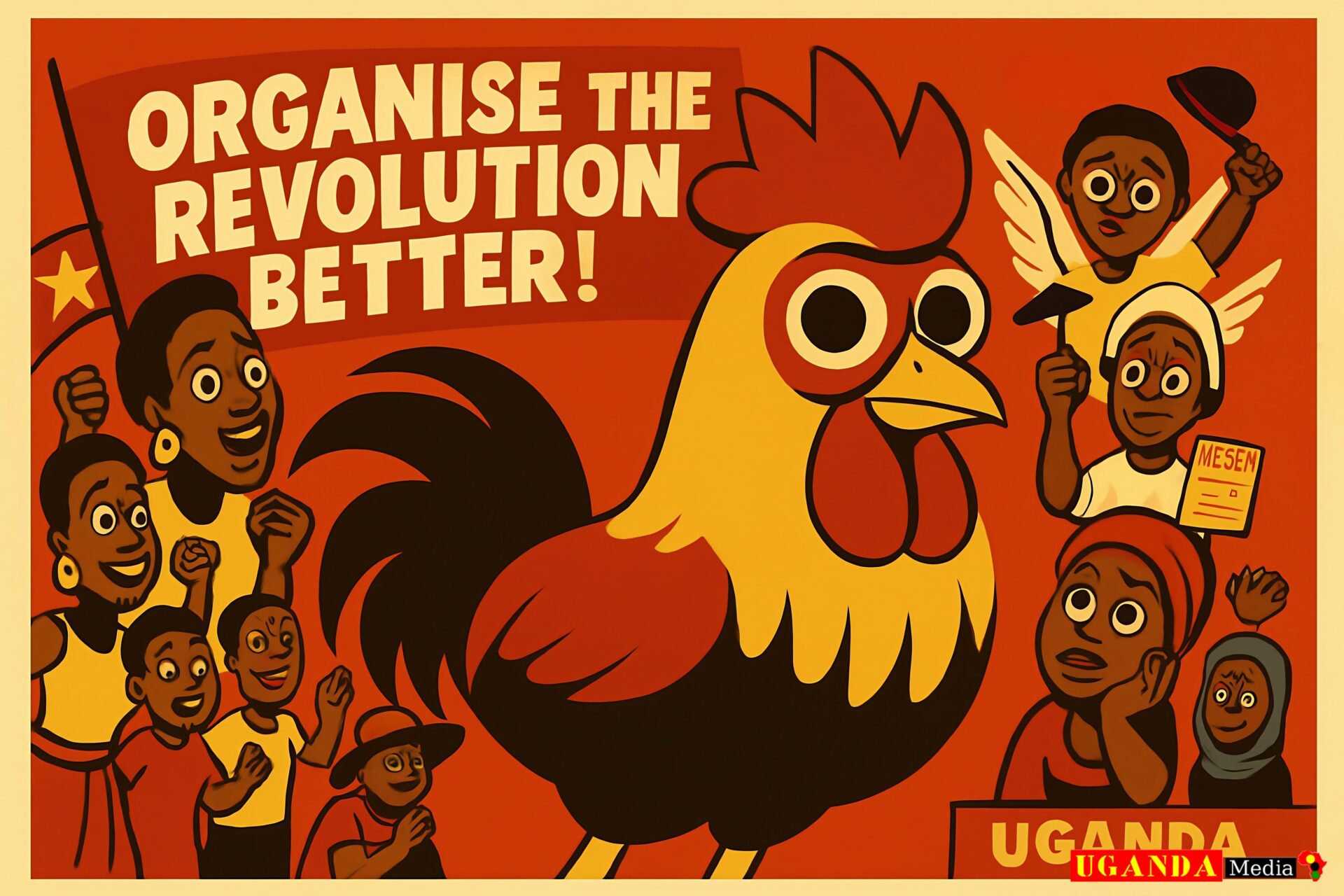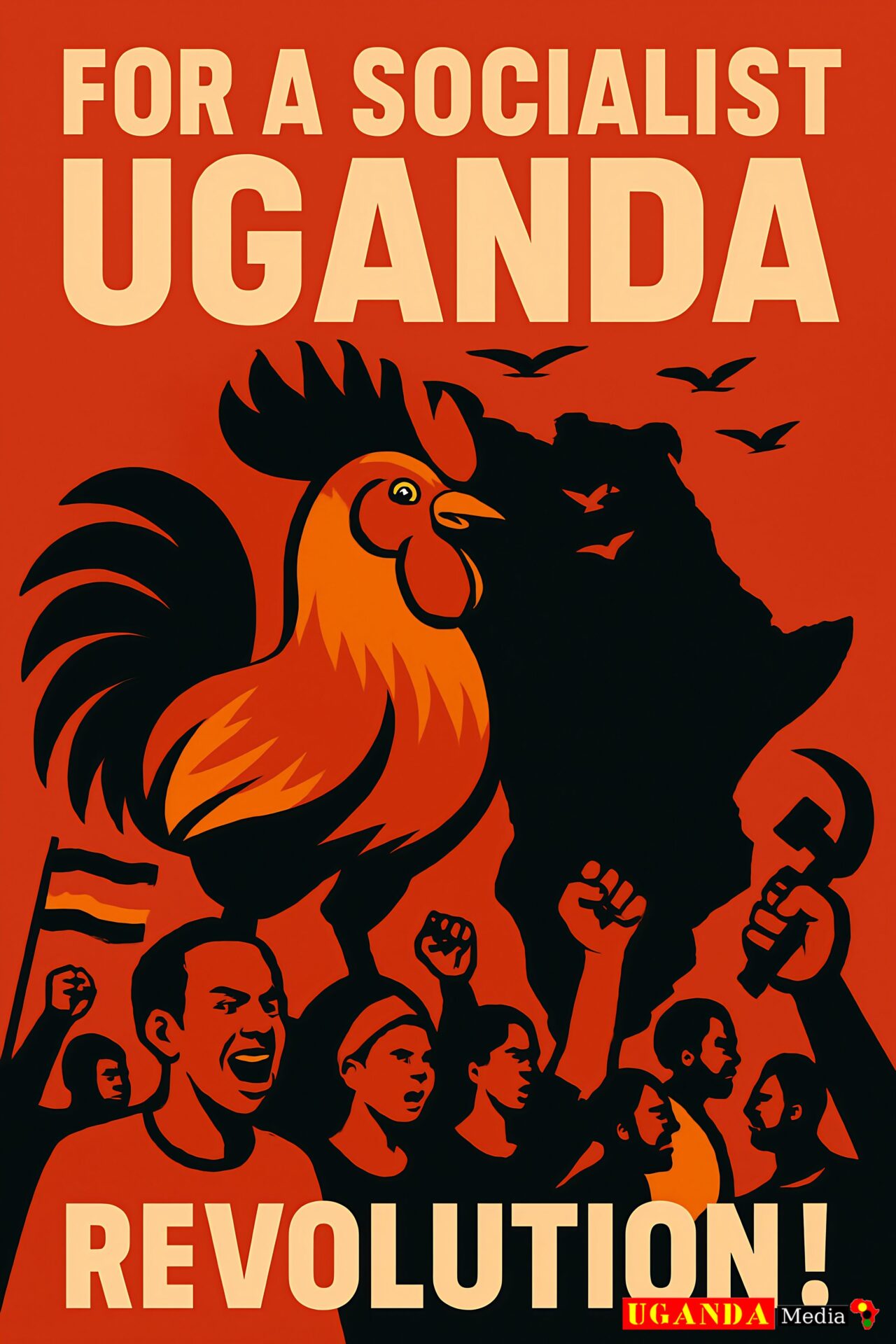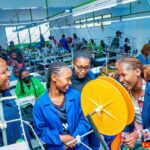Unlocking Uganda’s Development Potential: Insights from the Parliamentary Session on 10 April 2025
On Thursday, 10 April 2025, the Ugandan Parliament convened for a pivotal session that delved into critical issues shaping the nation’s future. From scrutinising budget allocations for FY 2025/2026 to addressing systemic challenges in agriculture, education, and regional integration, lawmakers engaged in robust debates aimed at fostering inclusive growth and sustainable development. Key discussions highlighted the urgent need for enhanced accountability in public finance management, harmonisation of policies within the East African Community (EAC), and innovative strategies to tackle unemployment, gender-based violence, and the digital divide.
This comprehensive analysis captures the essence of the parliamentary proceedings, offering valuable insights into proposed solutions such as promoting Kiswahili as a unifying language, leveraging social media influencers to boost tourism, and decentralising breeding organisations to empower rural farmers. The session also underscored the importance of capacity building for legislators, hosting international conferences to position Uganda as a diplomatic hub, and ensuring equitable resource allocation across sectors.

As Uganda strives to meet its National Development Plan IV targets and strengthen its role within the EAC, these debates reflect the complexities and opportunities inherent in policymaking. By prioritising transparency, collaboration, and evidence-based decision-making, the voices heard in Parliament aim to inspire action beyond the chamber walls, fostering unity and progress for all citizens. Dive deeper into this report to explore actionable recommendations and their potential impact on transforming Uganda into a beacon of resilience and prosperity.
Introduction: Why Parliamentary Debates Matter
In a thriving democracy, parliamentary debates transcend the realm of mere formal exchanges; they serve as the very lifeblood of governance. These discussions are not just about rhetoric or political posturing—they are essential mechanisms for transparency, accountability, and collective decision-making. In Uganda, a nation celebrated as the “Pearl of Africa,” the significance of these debates cannot be overstated. On Thursday, 10 April 2025, Members of Parliament convened in the august chambers of Parliament House in Kampala to deliberate on pressing national concerns. From agricultural development to fostering regional integration within the East African Community (EAC), the issues addressed during this session were both timely and transformative.
The Hansard—a meticulous record of every word spoken in Parliament—ensures that these deliberations are preserved for posterity. This official report is more than just a transcript; it is a cornerstone of democratic accountability. It allows citizens to scrutinise the commitments and decisions made by their elected representatives, ensuring that leaders remain answerable to the people they serve.
For instance, during this landmark session, lawmakers examined critical aspects of governance, such as budget estimates for the financial year 2025/2026, measures to enhance agricultural productivity, and strategies to harmonise policies across the EAC. These discussions reflect the aspirations and challenges faced by Ugandans—from farmers struggling with market access to youth grappling with unemployment. The debates also touched upon broader themes like the promotion of Kiswahili as a common language within the EAC, underscoring Uganda’s commitment to regional cohesion and cultural exchange.
As we unpack the proceedings of this historic sitting, readers will gain a deeper appreciation of how parliamentary debates shape policies that touch every corner of the nation. Whether addressing the need for silos to store maize in rural districts or advocating for increased funding for youth entrepreneurship programmes, these discussions have tangible implications for the lives of ordinary Ugandans.
In essence, parliamentary debates matter because they provide a platform where diverse voices converge to shape the future of the nation. They remind us that governance is not a solitary endeavour but a collective responsibility. As Uganda continues its journey towards sustainable development, the deliberations held on 10 April 2025 offer valuable insights into the complexities of policymaking—and the profound impact these decisions have on the everyday lives of citizens across the Pearl of Africa.
Opening Remarks and Setting the Agenda:
The Deputy Speaker, Mr Thomas Tayebwa, welcomed MPs and outlined the day’s priorities, emphasizing matters of national importance.
As the clock struck 10:05 a.m. on Thursday, 10 April 2025, the hallowed chambers of Uganda’s Parliament House in Kampala were filled with anticipation. The Deputy Speaker, Mr Thomas Tayebwa, rose to his feet, his presence commanding respect as he called the House to order. With a warm yet authoritative tone, he extended a formal welcome to all Members of Parliament, setting the tone for what would turned out to be a pivotal session in Uganda’s legislative calendar.
“ Honourable colleagues,” began Mr Tayebwa, his voice resonating across the chamber, “I welcome you to today’s sitting.” It was clear from his opening remarks that this was no ordinary day; the agenda brimmed with pressing national concerns demanding urgent attention. From agricultural development to regional integration within the East African Community (EAC), the topics on the table reflected the hopes and challenges of millions of Ugandans.
The Deputy Speaker wasted no time in outlining the day’s priorities. He emphasized the need to address matters of national importance, underlining that these discussions would shape policies with far-reaching implications for the country. His words carried weight, reminding lawmakers of their duty to serve not just as representatives but as stewards of Uganda’s future.
Among the key issues flagged for deliberation were budget estimates for the financial year 2025/2026, which required meticulous scrutiny. These estimates touched on critical sectors such as agriculture, health, education, and infrastructure—areas that directly impact the livelihoods of ordinary citizens. For instance, questions arose about funding allocations for initiatives aimed at boosting maize storage facilities in rural districts and enhancing market access for farmers struggling to sell their produce at fair prices.
Mr Tayebwa also highlighted the importance of fostering regional cooperation within the EAC, particularly in harmonising policies related to labour mobility, education systems, and essential commodity prices. The promotion of Kiswahili as an official language of communication within the region was another priority, reflecting Uganda’s commitment to cultural exchange and unity.
Throughout his remarks, the Deputy Speaker maintained an air of gravitas, ensuring that every Member of Parliament understood the gravity of the task ahead. His emphasis on transparency and accountability underscored the democratic principles at the heart of parliamentary proceedings. He reminded MPs that their debates, recorded meticulously in the Hansard, would become part of the public record—a testament to their collective responsibility to govern wisely and inclusively.
By the time Mr Tayebwa concluded his opening remarks, there was a palpable sense of purpose in the chamber. Lawmakers appeared ready to engage deeply with the issues at hand, knowing full well that their decisions would leave a lasting imprint on Uganda’s trajectory. As prayers were said and the session officially commenced, one thing was certain: this was a day when democracy would truly come alive in the Pearl of Africa.
Budget Estimates for FY 2025/2026:
A significant portion of the session on Thursday, 10 April 2025, was dedicated to the meticulous scrutiny of the proposed budget allocations for various ministries. These included critical sectors such as gender, agriculture, and information and communications technology (ICT). The discussions were emblematic of Uganda’s commitment to fostering inclusive development, addressing systemic challenges, and ensuring equitable resource distribution across the nation.
The Ministry of Gender, Labour, and Social Development emerged as a focal point during the deliberations. Members of Parliament expressed concerns about the adequacy of funding for initiatives aimed at empowering women and youth, particularly through programmes like the Youth Livelihood Programme (YLP) and the Uganda Women’s Empowerment Programme (UWEP). The committee recommended that an additional Shs 7.4 billion be allocated to these programmes to reach more beneficiaries. Furthermore, MPs underscored the importance of addressing staffing gaps within the ministry, which could hinder its ability to deliver on its mandate under the National Development Plan IV (NDP IV).
In the agricultural sector, lawmakers emphasized the need for increased investment, given that agriculture remains the backbone of Uganda’s economy. Despite employing approximately 70% of the population and contributing significantly to exports and GDP, the sector has historically been underfunded, receiving less than 3% of the national budget. MPs urged the government to allocate more resources towards agricultural extension services, seed distribution, fertilizers, and irrigation infrastructure. A notable recommendation was the provision of Shs 0.8 billion as counterpart funding for the GROW project, which seeks to enhance productivity among smallholder farmers. Additionally, there were calls to address logistical challenges faced by cooperatives, with suggestions to channel state-sponsored tractors through cooperative unions to improve accessibility for rural farmers.
Turning to ICT, the session highlighted the transformative potential of digital infrastructure in bridging regional disparities and driving economic growth. However, the proposed budget fell short of meeting the demands of ambitious projects aimed at automating government services and expanding broadband connectivity. For instance, the Ministry of ICT identified a funding gap of Shs 3.21 billion for continuous automation initiatives. Similarly, insufficient allocations for specialized ICT laboratory infrastructure at institutions like the Uganda Institute of Information and Communications Technology (UICT) raised concerns about the country’s readiness to compete in the global digital economy. Lawmakers recommended urgent interventions, including a Shs 1 billion allocation for laboratory upgrades and enhanced training programs for public servants.
Throughout the session, there was a palpable sense of urgency as MPs grappled with the implications of inadequate funding for these sectors. They stressed that without robust financial commitments, the goals outlined in NDP IV—such as agro-industrialization, digital transformation, and social equity—would remain elusive. Moreover, the debates reflected broader societal aspirations, from improving livelihoods in rural communities to positioning Uganda as a competitive player within the East African Community (EAC).
By scrutinizing the budget estimates for FY 2025/2026, Parliament demonstrated its role as a guardian of public resources, ensuring that taxpayer money is utilized effectively and efficiently. As the session drew to a close, it became evident that the decisions made on this day would shape not only the trajectory of individual ministries but also the future prosperity of Uganda as a whole.
Enhancing Rewards for Assistant RDCs:
One Member of Parliament raised a pertinent question during the session on Thursday, 10 April 2025, challenging whether enhancing the emoluments and rewards for assistant Resident District Commissioners (RDCs) would translate into tangible benefits for ordinary Ugandans. This issue sparked a robust debate, reflecting broader concerns about the efficiency, accountability, and value-for-money of such appointments within Uganda’s governance framework.
The discussion was prompted by a proposal to increase facilitation funds for RDCs, their deputies, and assistants, with specific allocations tailored to districts deemed larger or more complex in terms of administrative demands. For instance, Wakiso District—a rapidly urbanising area—was cited as having an extensive network of five Deputy RDCs, five Assistant RDCs, and one overall RDC, bringing the total number of appointees in the office to eleven individuals. While proponents argued that these roles are critical for effective mobilisation, coordination, and oversight at the grassroots level, critics questioned whether the proposed enhancements were justified given the current state of public service delivery across the country.
Hon. David Zijjan, representing Butembe County in Jinja, articulated these concerns poignantly. He noted that the appointment process for RDCs, particularly assistants, often appeared indiscriminate, lacking clear minimum qualifications or performance benchmarks. As an example, he highlighted the case of Jinja, where an assistant RDC reportedly lacked even a Primary Leaving Certificate (PLE), raising questions about competency and credibility. “These individuals are supposed to represent everyone—not just those aligned with political parties,” Hon. Zijjan remarked, emphasising that RDCs should serve all Ugandans impartially rather than being perceived as agents of partisan interests.
Furthermore, Hon. Zijjan expressed scepticism about the tangible returns Ugandans could expect from increased funding for these positions. He pointed out that while RDCs might perform mobilisation work for the ruling party, their primary mandate is to ensure good governance and equitable development. The crux of his argument centred on accountability: what training or capacity-building measures were being implemented to ensure that assistant RDCs delivered meaningful outcomes? Without structured programmes to equip them with leadership skills, conflict resolution techniques, or project management expertise, there was a risk that enhanced rewards would merely inflate costs without corresponding societal gains.
This critique resonated with other MPs who voiced similar apprehensions. Some argued that overstaffing in certain districts, coupled with inadequate facilitation, could lead to inefficiencies and resource wastage. For example, Arua City was mentioned as another case where nine Resident City Commissioners (RCCs), along with their deputies and assistants, were crammed into insufficient office spaces, leaving little room for constituents seeking services. Such logistical challenges underscored the need for a more strategic approach to staffing and resource allocation.
Despite these criticisms, some lawmakers defended the proposal, asserting that well-facilitated RDCs could play a pivotal role in addressing local challenges. They cited examples such as monitoring government programmes like the Parish Development Model (PDM), combating land grabbing, and supporting agricultural extension services. In districts like Kaberamaido, RDCs were described as instrumental in fighting crime and ensuring community safety. However, even supporters acknowledged that simply increasing emoluments without addressing systemic issues—such as unclear qualification criteria and limited oversight mechanisms—could undermine the initiative’s effectiveness.
In response to these deliberations, the committee recommended a nuanced approach. Rather than adopting a uniform facilitation model, they suggested tailoring allocations based on factors such as district size, population density, and geographical complexity. This would help ensure equity while addressing unique operational challenges faced by different regions. Additionally, they called for stricter accountability frameworks to monitor how funds were utilised, ensuring that taxpayers’ money translated into visible improvements in service delivery and citizen welfare.
Ultimately, the debate underscored the delicate balance between investing in human resources for decentralised governance and ensuring that such investments yield measurable dividends for Ugandans. As the session drew to a close, it became evident that enhancing rewards for assistant RDCs was not merely a financial decision—it was a test of Uganda’s commitment to fostering transparent, accountable, and inclusive leadership at every level of its administrative hierarchy.
Training Needs for Public Servants:
Lawmakers highlighted the need for structured training programmes to equip government officials with the skills necessary for effective service delivery, emphasising that a well-trained public service is fundamental to achieving Uganda’s developmental goals. During the parliamentary session on Thursday, 10 April 2025, this issue emerged as a critical component of discussions about governance, accountability, and institutional efficiency.
The debate was anchored in the recognition that public servants are the backbone of government operations, yet many lack the technical expertise, managerial acumen, and digital literacy required to meet the demands of modern administration. For instance, Hon. Sarah Oguzu Lee underscored the importance of aligning training initiatives with the objectives of the National Development Plan IV (NDP IV), which prioritises agro-industrialisation, digital transformation, and regional integration within the East African Community (EAC). She argued that without investing in capacity-building for civil servants, these ambitious targets would remain aspirational rather than attainable.
One of the key concerns raised was the persistent gap in ICT skills among public officials. Several MPs pointed out that while Uganda has made strides in automating government services—such as through the Parish Development Model (PDM) and e-government platforms—many bureaucrats struggle to utilise these systems effectively. This hampers productivity and frustrates citizens seeking services. To address this, lawmakers recommended allocating Shs 3.21 billion specifically for continuous automation training programmes tailored to different cadres of public servants. These programmes would focus on enhancing digital literacy, cybersecurity awareness, and data management competencies.
Moreover, there were calls to decentralise training opportunities so that they reach even the most remote districts. Rural areas often bear the brunt of understaffing and inadequate resources, leaving local governments ill-equipped to implement national policies. Hon. Sylvia Bahereira, representing Kamwenge District, proposed that institutions like the Uganda Industrial Research Institute (UIRI) and Management Training and Advisory Centre (MTAC) expand their outreach by establishing satellite centres in underserved regions. By doing so, district-level officials could access hands-on training in essential areas such as project management, conflict resolution, and community mobilisation.
Another recurring theme was the need for specialised training in sectors identified as priorities under NDP IV. For example, agricultural extension workers require updated knowledge on climate-smart farming techniques, pest control, and post-harvest handling to support farmers grappling with challenges like maize storage and market access. Similarly, immigration officers and labour attachés stationed abroad need comprehensive training on international labour standards, migrant rights, and diplomatic protocols to better protect Ugandan workers overseas. Lawmakers urged the Ministry of Gender, Labour, and Social Development to allocate resources towards developing centralised databases and monitoring systems for migrant workers, ensuring traceability and safeguarding their welfare upon return.
The discussion also extended to leadership development programmes aimed at fostering ethical governance and accountability. Hon. David Zijjan from Jinja County lamented the prevalence of unqualified appointees in critical roles, citing an assistant Resident District Commissioner (RDC) who lacked even a Primary Leaving Certificate (PLE). He called for stricter qualification criteria coupled with mandatory induction courses for newly appointed officials. Such measures, he argued, would instil professionalism and restore public confidence in the administrative machinery.
Furthermore, lawmakers recognised the importance of collaboration between ministries, private sector entities, and educational institutions to design relevant curricula. The Uganda Hotel and Tourism Training Institute (UHTTI) was cited as a case study where affirmative action had been recommended to transform it into a centre of excellence for tourism education. Equipping trainers with cutting-edge methodologies and facilities would ripple down to improved service delivery across the hospitality industry.
Despite overwhelming consensus on the necessity of structured training programmes, some MPs expressed reservations about implementation challenges. Questions arose regarding how to ensure that allocated funds were utilised judiciously and whether existing frameworks were robust enough to monitor outcomes. In response, the committee proposed setting up oversight mechanisms to evaluate the impact of training initiatives, recommending regular audits and feedback loops involving both beneficiaries and stakeholders.
In conclusion, the emphasis on training needs for public servants reflected Parliament’s commitment to building a competent, responsive, and accountable bureaucracy. As Uganda navigates complex socio-economic landscapes, equipping its civil servants with the requisite tools and knowledge is not merely an option—it is an imperative. Through targeted investments in human capital, the nation can bridge gaps in service delivery, enhance citizen satisfaction, and ultimately realise the vision of a prosperous Pearl of Africa.
Harmonisation of Education Systems Across EAC:
Hon. Charles Matovu called for policies facilitating mutual recognition of academic qualifications among East African Community (EAC) member states, emphasising the need to create a seamless educational and professional environment across the region. This issue emerged as a pivotal topic during the parliamentary session on Thursday, 10 April 2025, reflecting Uganda’s commitment to fostering regional integration and mobility within the EAC.
The debate was anchored in the recognition that education is a cornerstone of sustainable development and economic progress. However, disparities in education systems across the EAC have long hindered the free movement of students, teachers, and professionals. Hon. Matovu, representing Busiro County South in Wakiso District, highlighted these challenges, noting that without harmonised systems, Ugandans face significant barriers when seeking employment or pursuing higher education in neighbouring countries such as Kenya, Tanzania, or Rwanda.
One of the key concerns raised was the lack of mutual recognition of academic qualifications. For instance, a Ugandan teacher trained under the national curriculum might struggle to secure a teaching position in Rwanda, even if their qualifications are equivalent. Similarly, students from Burundi who study the Ugandan curriculum often encounter logistical hurdles when sitting for Uganda National Examinations Board (UNEB) exams, as they must travel to Uganda to do so. These inefficiencies not only undermine regional cohesion but also stifle opportunities for cross-border collaboration and innovation.
To address these issues, Hon. Matovu urged the Committee on East African Community Affairs to prioritise the development of policies that would facilitate the mutual recognition of academic qualifications. He proposed creating a regional framework that aligns curricula, assessment methods, and certification processes across EAC member states. Such a framework, he argued, would enable professionals to compete for similar employment opportunities and allow students to access educational institutions seamlessly throughout the region.
The discussion also extended to the importance of language as a unifying factor in education. Several MPs, including Dr Florence Asiimwe, reiterated the need to promote Kiswahili as a common language within the EAC. They pointed out that while Kenyans and Tanzanians often converse fluently in Kiswahili, Ugandans lag behind in adopting the language. This linguistic gap isolates Ugandans in regional interactions and limits their ability to fully participate in EAC initiatives. To bridge this divide, lawmakers recommended integrating Kiswahili into the national education curriculum, ensuring that future generations are equipped with the language skills necessary for regional engagement.
Furthermore, there were calls to strengthen institutional partnerships between universities and research organisations across the EAC. For example, Makerere University and the National Agricultural Research Organisation (NARO) were cited as institutions that could collaborate with counterparts in Kenya and Tanzania to develop joint research programmes and share best practices. Such collaborations would not only enhance the quality of education but also foster innovation tailored to the region’s unique challenges.
Despite overwhelming support for harmonisation, some MPs expressed reservations about implementation challenges. Questions arose regarding how to balance national priorities with regional objectives, particularly in cases where local curricula reflect cultural or historical contexts distinct from those of neighbouring countries. In response, the committee proposed phased approaches, beginning with pilot programmes in select sectors such as agriculture, health, and technology before scaling up to broader educational reforms.
In conclusion, the emphasis on harmonising education systems across the EAC underscored Parliament’s vision of a united and prosperous region. By facilitating mutual recognition of qualifications, promoting Kiswahili, and strengthening institutional partnerships, Uganda can position itself as a leader in driving regional integration. As Hon. Matovu aptly noted, “We cannot have one area with a different education system from another. Later on, it will impact the freedom of workers to move, who will qualify, who will work where, how to be assessed, how to join the institutions of learning, and all those kinds of things.” Through targeted investments in education, the nation can unlock new opportunities for its citizens while contributing to the collective advancement of the East African Community.
Addressing Market Access Challenges:
Farmers’ struggles to sell their produce at fair prices underscored the urgent need for improved market access mechanisms, a pressing issue that dominated discussions during the parliamentary session on Thursday, 10 April 2025. Lawmakers from across Uganda highlighted the systemic challenges faced by farmers, particularly smallholders, in accessing equitable markets for their goods. These challenges affect household incomes and undermine national efforts to achieve food security, enhance agricultural productivity, and promote economic growth.
One poignant example shared during the session came from an MP representing a rural constituency, who recounted how local farmers were forced to sell their maize at distressingly low prices—sometimes as little as Shs 500 to Shs 700 per kilogram—due to a lack of storage facilities and limited bargaining power. This situation was compounded by middlemen who exploited the desperation of farmers, purchasing produce at rock-bottom rates only to resell it at significantly higher prices in urban markets. Such practices leave farmers trapped in cycles of poverty, despite their critical role in feeding the nation.
Hon. Catherine Lamwaka, representing Omoro District, articulated these frustrations eloquently, stating that farmers often find themselves with no choice but to sell their produce immediately after harvest when supply is high and demand is low. She cited cases where farmers sold maize grains far below their actual value, yet had to purchase so-called “improved seeds” at exorbitant costs ranging from Shs 20,000 to Shs 50,000 per kilogram. This imbalance between input costs and returns highlights the urgent need for interventions that empower farmers economically while addressing structural inefficiencies in the market system.
The debate also touched upon the broader implications of market access challenges for Uganda’s integration into regional and international trade networks. Several MPs pointed out that Ugandan agricultural products, especially those destined for European markets, frequently fail to meet stringent certification standards set by importing countries. This failure not only results in rejected shipments but also tarnishes Uganda’s reputation as a reliable exporter. The National Bureau of Standards (UNBS) has been criticised for its inability to provide timely certification services, leaving traders to bear the financial burden of destroyed commodities that do not comply with international regulations.
To address these issues, lawmakers proposed a multipronged approach aimed at creating more robust market access mechanisms. First, there were calls to invest in decentralised storage infrastructure, such as silos and warehouses, particularly at the sub-county level. These facilities would enable farmers to store their produce post-harvest, allowing them to wait for better prices instead of being compelled to sell immediately. For instance, Hon. Lawrence Songa suggested allocating funds specifically for constructing storage facilities in regions like Nakaseke, where farmers currently lack options beyond selling cheaply or risking spoilage.
Additionally, MPs recommended reviving and strengthening cooperatives, which historically played a vital role in guiding farmers on when to buy inputs, when to sell their produce, and how to negotiate better prices. However, many cooperatives have become defunct or ineffective over the years due to mismanagement and insufficient support. Revitalising these institutions could restore their capacity to act as intermediaries between farmers and larger markets, ensuring fairer pricing and reducing reliance on exploitative middlemen.
Another key recommendation focused on leveraging technology to improve market linkages. The stalled warehouse receipt system, which was designed to stabilise farm-gate prices by enabling farmers to use stored produce as collateral for loans, was flagged as a project needing immediate revitalisation. By providing farmers with financial liquidity and greater control over when they sell their goods, this system could help mitigate some of the vulnerabilities associated with cash-flow shortages during harvest seasons.
Lawmakers also stressed the importance of enhancing Uganda’s participation in regional trade under the East African Community (EAC). They called for harmonisation of essential commodity prices and removal of non-tariff barriers that hinder cross-border trade. For example, simplifying visa requirements and easing customs procedures could encourage smoother movement of goods and people within the EAC, benefiting Ugandan farmers seeking wider markets for their produce.
Furthermore, MPs advocated for increased investment in value addition and processing industries to reduce dependency on raw exports. By transforming raw materials into finished or semifinished products before exporting, Uganda could capture greater value from its agricultural output. This shift would require targeted funding for agro-processing initiatives, improved training programmes for farmers on packaging and preservation techniques, and stronger collaboration between public and private sector stakeholders.
In conclusion, the discussions about market access challenges painted a clear picture of the systemic inequities facing Ugandan farmers. From inadequate storage facilities to exploitative middlemen and stringent export standards, these obstacles collectively stifle agricultural potential and perpetuate poverty among rural communities. By prioritising investments in infrastructure, reviving cooperatives, leveraging technology, and fostering regional integration, Uganda can create a more equitable and sustainable market environment. As one MP aptly summarised, “If we want our farmers to thrive, we must ensure they have access to markets where their hard work translates into fair rewards.” Through concerted action, Parliament has an opportunity to transform this vision into reality, paving the way for a brighter future for Uganda’s agricultural sector.
State House Budget Transparency:
Concerns arose over the lack of detailed breakdowns in State House expenditure, prompting calls for greater accountability. This issue emerged as a significant point of contention during the parliamentary session on Thursday, 10 April 2025, reflecting growing unease among lawmakers about the opacity surrounding the financial operations of one of Uganda’s most critical institutions.
The debate was sparked by observations from the Committee on Presidential Affairs, which highlighted a troubling trend in State House budget allocations. Over recent years, the annual budget for State House has seen a marked increase—from Shs 497 billion in 2019 to Shs 857 billion in 2020, and further to Shs 1.02 trillion in 2021. Despite these substantial allocations, there remains a conspicuous absence of transparency regarding how the funds are utilised. MPs expressed alarm at what they described as “undetailed budgetary allocations,” which create loopholes for unchecked spending on non-priority activities.
One of the key concerns raised was the repeated submission of supplementary budgets by State House. For instance, in April and October 2020 alone, supplementary allocations worth Shs 90 billion and Shs 450 billion respectively were approved by Parliament. These additional requests came shortly after the commencement of the financial year, raising suspicions about inadequate planning and potential misuse of public funds. As Hon. Kanyike pointed out during the session, such practices undermine fiscal discipline and erode public trust in governance. “What State House brings here is a proposal,” he remarked, emphasising that once approved, Parliament cannot disown its decisions but must ensure proper oversight moving forward.
Critics within the House also voiced frustration over perceived duplication of roles between State House and existing Ministries, Departments, and Agencies (MDAs). Several MPs argued that certain units within State House perform functions already mandated to line ministries, yet receive disproportionately large facilitation funds. This redundancy not only diverts resources away from essential sectors like health, education, and infrastructure but also diminishes the authority of duly appointed ministers. “We find ministers constrained while these units [in State House] are more powerful than even our ministers,” lamented an MP, underscoring the imbalance in power dynamics.
To address these challenges, lawmakers proposed several measures aimed at enhancing accountability and ensuring value for money. First, they called for a detailed breakdown of State House budget allocations, categorised by specific activities or projects. Such transparency would enable Parliament to scrutinise expenditures effectively and prevent wasteful spending on non-productive ventures—such as impulsive donations or so-called “bonanzas”—which yield no long-term economic benefits. The Minority Report submitted by the committee specifically recommended that the Minister provide a comprehensive account of all funded activities to avoid ambiguity and foster public confidence.
Additionally, MPs advocated for stricter enforcement of appropriation rules to curb the practice of seeking supplementary budgets midway through the fiscal year. They urged the Government Chief Whip, Denis Obua, to collaborate with relevant stakeholders in streamlining budgetary processes and eliminating inefficiencies. By doing so, they hope to instil a culture of prudence and responsibility in managing taxpayer money.
Another recommendation centred on re-evaluating the staffing structure within State House. Some MPs questioned whether the current level of staffing aligns with operational needs, particularly given reports of overstaffing in certain districts. For example, Wakiso District reportedly employs five Deputy Resident District Commissioners (RDCs), five Assistant RDCs, and one overall RDC—a total of eleven individuals—which some lawmakers deemed excessive. Reducing redundancies and optimising human resource deployment could free up resources for priority areas without compromising service delivery.
In response to these criticisms, the Government Chief Whip acknowledged the concerns raised and pledged to work towards greater clarity in future budget submissions. However, he cautioned against viewing State House expenditures solely through a lens of scepticism, reminding colleagues that many initiatives undertaken by the institution contribute directly to national development goals. Nevertheless, his assurances did little to assuage lingering doubts among MPs who remain steadfast in their demand for evidence-based justifications for every shilling allocated.
Ultimately, the discourse around State House budget transparency underscores Parliament’s pivotal role as a guardian of public finances. By pushing for detailed breakdowns, rigorous oversight, and prudent reallocation of resources, lawmakers aim to hold State House accountable to the people it serves. As one MP aptly summarised, “We own it.” Through sustained vigilance and constructive engagement, Uganda can pave the way for a more transparent and equitable system of governance—one where every citizen can trace the impact of their tax contributions on tangible outcomes for the nation.
Promoting Kiswahili as an Official Language:
Dr Florence Asiimwe stressed the importance of promoting Kiswahili to enhance regional communication and integration, a topic that resonated deeply during the parliamentary session on Thursday, 10 April 2025. As Uganda continues to strengthen its ties within the East African Community (EAC), the adoption and promotion of Kiswahili as an official language emerged as a critical step toward fostering unity, collaboration, and mutual understanding among member states.
The discussion was anchored in the recognition that Kiswahili serves as a common language across much of East Africa, particularly in Kenya and Tanzania, where it is widely spoken and understood. However, Dr Florence Asiimwe, representing Masindi District, lamented Uganda’s lagging position in embracing the language. She noted how Ugandans often feel excluded when interacting with their counterparts from neighbouring countries, who seamlessly converse in Kiswahili while Ugandans default to English. This linguistic gap isolates Ugandans in regional engagements and limits their ability to fully participate in EAC initiatives, trade, and cultural exchanges.
Dr Asiimwe’s remarks were echoed by other lawmakers, including Hon. James Magode, the Minister of State for East African Community Affairs, who humorously admitted his hesitance to speak Kiswahili on the floor of Parliament despite its growing importance. His candid admission underscored the need for Ugandan leaders to lead by example in championing the language. “It should start with us,” he remarked, urging Parliament to allocate resources and create platforms for Kiswahili learning and popularisation. He further highlighted that speaking Kiswahili could ease cross-border interactions, as many communities in neighbouring countries instinctively trust those who communicate in their preferred language.
One of the key recommendations made during the session was the allocation of Shs 1.5 billion to promote Kiswahili across all ministries, departments, and agencies, as well as local governments. The funds would be used to integrate Kiswahili into government operations, sensitise citizens about its significance, and establish training programmes for public servants. For instance, Dr Asiimwe proposed that every ministry and department should budget specifically for Kiswahili training, ensuring that civil servants at all levels become proficient in the language. This initiative aligns with the broader goal of making Kiswahili a unifying factor within the EAC, facilitating smoother trade negotiations, diplomatic relations, and grassroots mobilisation.
Lawmakers also debated the role of educational institutions in promoting Kiswahili. While some argued that the Ministry of Education and Sports should take the lead in incorporating Kiswahili into school curricula, others suggested that the Ministry of East African Community Affairs focus on popularising the language as part of its mandate to sensitise Ugandans about regional integration. Dr Anthony Okullo, representing Lamwo County, humorously urged his colleagues to begin practising Kiswahili immediately, saying, “Tafadhali lituanze kuongea Kiswahili hapa” (“Let us start speaking Kiswahili here”). His call to action reflected the urgency of bridging the linguistic divide before it further impedes Uganda’s progress within the EAC.
Another dimension of the debate centred on the practical benefits of adopting Kiswahili. Several MPs pointed out that the language could play a pivotal role in enhancing border trade and easing cross-border mobility. For example, traders from Uganda often face challenges when conducting business in markets where Kiswahili is the primary mode of communication. By equipping Ugandans with Kiswahili skills, the country can empower its citizens to compete more effectively in regional markets, thereby boosting economic growth and reducing dependency on middlemen.
Despite overwhelming support for promoting Kiswahili, some concerns were raised about implementation challenges. Questions arose regarding whether the allocated funds would be sufficient to achieve meaningful outcomes and whether existing frameworks were robust enough to monitor progress. In response, the committee proposed establishing measurable targets and regular evaluations to ensure accountability and transparency in utilising the funds.
In conclusion, the emphasis on promoting Kiswahili as an official language underscores Uganda’s commitment to deepening its integration within the EAC. By investing in language training, curriculum development, and public awareness campaigns, Uganda can bridge the linguistic divide that has long hindered its participation in regional affairs. As Dr Florence Asiimwe aptly summarised, “Kiswahili is not just a language; it is a tool for unity, trade, and progress.” Through concerted efforts, Uganda can transform this vision into reality, paving the way for a more cohesive and prosperous East African Community.
Support for Agro-Industrialisation:
MPs advocated for increased funding to support agro-industrialisation, aligning with National Development Plan IV (NDP IV) targets, during the parliamentary session on Thursday, 10 April 2025. This issue emerged as a cornerstone of discussions, reflecting Uganda’s commitment to transforming its agricultural sector from subsistence farming to a commercially viable and industrialised system. As agriculture remains the backbone of Uganda’s economy—employing approximately 70% of the population—it is imperative that the nation invests strategically to unlock its full potential.
The debate was anchored in the recognition that agriculture contributes only 24.7% of Uganda’s GDP, despite its significant role in employment and livelihoods. MPs highlighted that much of this contribution stems from low-value raw materials, leaving the sector underperforming compared to its potential. To address this disparity, lawmakers called for increased budgetary allocations to agro-industrialisation programmes, which aim to mechanise production, add value to raw materials, and enhance agro-processing capabilities.
One of the key concerns raised was the current allocation to the agro-industrialisation programme, which stands at just 2.4% of the national budget for the coming financial year. This figure represents a decline from the 2.9% allocated in the approved budget for 2024/2025 and falls significantly short of the NDP IV target of Shs 2,448 billion. MPs argued that such underfunding contradicts Uganda’s international commitments, including its membership in the Comprehensive Africa Agriculture Development Programme (CAADP), which advocates for allocating at least 10% of the national budget to agriculture.
To bridge this gap, the committee recommended a phased increase in funding for agro-industrialisation, starting with raising the allocation from 2.4% to at least 5% in the medium term. This incremental approach acknowledges the financial constraints faced by the government while setting a clear trajectory toward achieving the CAADP target. The additional funds would be channelled into critical areas such as mechanisation, research and development, irrigation infrastructure, and the establishment of food and seed reserves.
Mechanisation emerged as a focal point during the discussions. MPs stressed the need to prioritise investment in agricultural mechanisation to transition from manual labour to more efficient farming practices. For instance, the committee proposed allocating Shs 67 billion to procure and distribute tractors across the country, ensuring that each sub-county has access to heavy machinery while every parish receives smaller, hand-operated tractors. This initiative aligns with the broader goal of increasing productivity and enabling farmers to cultivate larger plots of land with greater efficiency.
Another critical recommendation centred on enhancing storage facilities for agricultural produce. MPs noted that many farmers face post-harvest losses due to inadequate silos and warehouses. To mitigate this challenge, the committee urged the Ministry of Agriculture, Animal Industry and Fisheries (MAAIF) to take stock of non-operational storage facilities constructed under previous programmes and allocate Shs 10.63 billion to bring them back into use. Additionally, MAAIF was encouraged to develop targeted support programmes for smallholder and medium-scale farmers, providing financial assistance or cooperative models to enable shared use of storage resources.
Value addition and agro-processing were also emphasised as vital components of agro-industrialisation. MPs pointed out that transforming raw materials into finished or semifinished products before export could significantly boost Uganda’s earnings from agricultural trade. For example, instead of exporting unprocessed coffee beans, investing in processing plants could allow the country to capture higher value from its strategic crops. Lawmakers recommended prioritising the establishment of mechanisation centres where farmers can access equipment and training to scale up their operations.
Furthermore, MPs underscored the importance of aligning the agro-industrialisation programme with NDP IV objectives, particularly those related to job creation, poverty alleviation, and food security. They cited examples such as the Acomai Agricultural Complex, which requires an additional Shs 9.9 billion to complete flood protection works and ensure sustainable agricultural production. Similarly, affirmative action for fisheries and aquaculture development was flagged as essential to diversifying income sources for rural communities.
Despite overwhelming support for increased funding, some concerns were raised about implementation challenges. Questions arose regarding whether existing frameworks were robust enough to monitor expenditures and evaluate outcomes effectively. In response, the committee proposed establishing measurable targets and regular audits to ensure accountability and transparency in utilising the funds.
In conclusion, the advocacy for increased funding to support agro-industrialisation underscores Parliament’s vision of a transformed agricultural sector capable of driving economic growth and improving livelihoods. By aligning budgetary allocations with NDP IV targets and adopting a phased approach to achieve CAADP commitments, Uganda can position itself as a leader in sustainable agricultural development. As one MP aptly summarised, “Agriculture should be considered the magic bullet to deliver this country to its aspirations.” Through concerted efforts, Uganda can harness the untapped potential of its agricultural sector, paving the way for a prosperous future for all Ugandans.
Tourism Promotion Strategies:
Recommendations included leveraging social media influencers and appointing destination representatives abroad to boost tourism, reflecting a forward-thinking approach to revitalising Uganda’s tourism sector. During the parliamentary session on Thursday, 10 April 2025, lawmakers engaged in a robust discussion about innovative strategies to position Uganda as a premier tourist destination within the East African region and beyond. The debate underscored the urgent need to modernise marketing efforts, enhance visibility, and capitalise on the country’s rich natural and cultural assets.
One of the key recommendations that emerged was the use of social media influencers to promote Uganda’s diverse tourism offerings. MPs noted that traditional advertising methods, such as expensive campaigns on platforms like CNN, BBC, and Al Jazeera, have proven costly and less effective in engaging younger, digitally savvy audiences. Instead, they proposed adopting cost-effective, interactive strategies that leverage popular social media platforms like TikTok, YouTube, Instagram, and X (formerly Twitter). These platforms are not only more affordable but also offer dynamic ways to showcase Uganda’s attractions—such as its wildlife, national parks, cultural heritage, and adventure tourism opportunities—to a global audience.
For instance, Hon. Sylvia Bahereira, representing Kamwenge District, highlighted how influencers with large followings could create authentic, relatable content that resonates with potential tourists. By partnering with influencers who specialise in travel, conservation, or lifestyle content, Uganda could tap into niche markets and inspire travellers to visit destinations like Bwindi Impenetrable National Park, Murchison Falls, or Sipi Falls. MPs also suggested collaborating with local Ugandan influencers to amplify domestic tourism, encouraging citizens to explore their own country and appreciate its beauty.
Another critical recommendation was the appointment of destination representatives in key international markets. These representatives would act as ambassadors for Uganda’s tourism industry, working closely with embassies, missions, and private-sector partners to market the country’s attractions. The committee proposed setting measurable output targets for these representatives to ensure accountability and effectiveness. For example, they could be tasked with organising roadshows, cultural exhibitions, and trade fairs in strategic locations such as Europe, North America, and Asia to attract high-value tourists.
Ms Catherine Lamwaka, representing Omoro District, praised the committee for identifying this innovative strategy. She pointed out that countries like Rwanda and Tanzania have successfully used destination representatives to boost their tourism sectors, resulting in higher visitor numbers and increased foreign exchange earnings. In contrast, Uganda has lagged behind despite possessing equally—if not more—impressive tourism products. “We have what we do not use as a country,” she remarked, referencing the underutilisation of gorilla trekking permits, which cost $100 in Uganda compared to over $200 in Rwanda. This disparity highlights the missed opportunities for revenue generation and underscores the importance of aggressive marketing.
The discussion also touched on the need to collaborate with the private sector to enhance tourism promotion. MPs recommended exploring public-private partnerships to fund creative campaigns and initiatives. For example, Uganda Airlines could play a pivotal role by dedicating spaces on flights and in lounges to advertise tourism destinations. Similarly, Uganda’s embassies abroad could utilise their premises to host events showcasing the country’s culture, cuisine, and natural wonders. Such collaborations would reduce costs and amplify the reach of promotional efforts.
Additionally, there were calls to improve domestic tourism as a foundation for broader growth. Several MPs lamented the lack of engagement from government officials and parliamentarians themselves, noting that many had never visited national parks or other iconic sites. Hon. Eddie Kwizera, representing Kisoro District, urged his colleagues to lead by example by visiting these destinations and advocating for them both locally and internationally. He argued that fostering a culture of domestic tourism would create a ripple effect, inspiring ordinary Ugandans to take pride in their heritage and encouraging word-of-mouth promotion.
Lawmakers further stressed the importance of infrastructure development to support these promotional strategies. They recommended increasing funding for roads leading to tourist sites, upgrading accommodation facilities, and ensuring reliable internet connectivity in remote areas. Without adequate infrastructure, even the most compelling marketing campaigns risk falling flat if tourists encounter logistical challenges upon arrival. For instance, improving signage and digital navigation tools within national parks could significantly enhance the visitor experience.
In conclusion, the recommendations around tourism promotion strategies highlight Parliament’s commitment to transforming Uganda’s tourism sector into a cornerstone of economic growth. By embracing modern techniques such as social media marketing, appointing dedicated destination representatives, and fostering public-private collaborations, Uganda can overcome current limitations and unlock its full potential as a world-class tourist destination. As one MP aptly summarised, “If we want our tourists to come, we must first show them why they should.” Through concerted efforts, Uganda can shine as the “Pearl of Africa” and reap the benefits of sustainable tourism development.
Infrastructure Development for Gender-Based Violence Shelters:
Suggestions were made to construct Gender-Based Violence (GBV) shelters in regions with high incidence rates using cost-effective methods, a proposal that gained significant traction during the parliamentary session on Thursday, 10 April 2025. This initiative reflects Uganda’s growing commitment to addressing the pervasive issue of GBV by providing safe spaces for survivors and ensuring their recovery and rehabilitation.
The discussion was anchored in the recognition that GBV remains a critical challenge across Uganda, particularly in regions where cultural norms, economic disparities, and weak enforcement of laws exacerbate the vulnerability of women, girls, and other marginalised groups. Lawmakers noted that while Uganda has clear guidelines for establishing and operationalising GBV shelters, implementation has been inconsistent, leaving many survivors without access to essential services.
One of the key recommendations came from Ms Sarah Opendi, the Woman Representative for Tororo District, who proposed constructing at least one regional GBV shelter per financial year. Her suggestion was based on the principle of prioritising regions with the highest incidence rates of GBV, ensuring that resources are allocated where they are most needed. For instance, areas like Karamoja, Northern Uganda, and parts of Western Uganda have reported alarmingly high levels of GBV cases, yet lack adequate infrastructure to support survivors.
Ms Opendi further emphasised the feasibility of this approach, stating that constructing a single shelter does not require exorbitant funding. She cited an example where the Uganda People’s Defence Forces (UPDF) could construct a GBV shelter in one region at an estimated cost of Shs 600 million—a figure deemed affordable and achievable within the national budget. “Let us get away from corruption,” she urged, highlighting the importance of transparency and accountability in utilising public funds for such projects. By adopting cost-effective construction methods, the government could ensure that these shelters are built efficiently without compromising quality or functionality.
Another critical aspect of the debate centred on the need for survivor-centred services within these shelters. MPs pointed out that many existing shelters across the country fail to provide comprehensive support, leaving survivors without access to necessary psychosocial, legal, and medical services. For example, clinical care for sexual assault survivors—commonly referred to as “Clinical Management of Rape”—is often missing in current facilities. To address this gap, lawmakers recommended integrating multidisciplinary teams into the design and operation of GBV shelters. These teams would include counsellors, healthcare professionals, legal advisors, and social workers, ensuring that survivors receive holistic support tailored to their unique needs.
The committee also highlighted the importance of decentralising GBV shelters to improve accessibility, particularly in rural and hard-to-reach areas. Several MPs argued that centralised shelters in urban centres exclude those living in remote communities, who face additional barriers such as transportation costs and cultural stigma. By constructing shelters closer to affected populations, the government could reduce these challenges and encourage more survivors to seek help.
To fund these initiatives, the committee proposed allocating specific budgets under the Ministry of Gender, Labour, and Social Development. For instance, they recommended providing Shs 7.7 billion to support the rollout of programmes aimed at enhancing the capacity of GBV shelters. Additionally, they called for collaboration with non-governmental organisations (NGOs), which have historically played a pivotal role in managing and operating such facilities. However, given the declining availability of donor funding for NGOs, there was consensus that the government must take greater responsibility for sustaining these shelters in the long term.
Furthermore, MPs underscored the importance of community sensitisation campaigns to complement the construction of GBV shelters. They argued that raising awareness about the availability and purpose of these facilities is crucial to overcoming societal stigma and encouraging survivors to come forward. Such campaigns could leverage local leaders, religious institutions, and media platforms to disseminate information effectively.
In conclusion, the suggestions to construct GBV shelters using cost-effective methods reflect Parliament’s commitment to creating a safer and more equitable society for all Ugandans. By prioritising regions with high incidence rates, ensuring survivor-centred services, and fostering partnerships with stakeholders, Uganda can transform its approach to combating gender-based violence. As Ms Opendi aptly summarised, “These shelters are not just buildings—they are lifelines for those who have nowhere else to turn.” Through sustained investment and strategic planning, Uganda can pave the way for a future where every survivor has access to the support and protection they deserve.
National Apprenticeship Programme:
Critiques focused on scattered interventions under different ministries, calling for streamlined efforts, as highlighted during the parliamentary session on Thursday, 10 April 2025. This issue emerged as a significant point of contention, reflecting concerns about inefficiencies and duplication in Uganda’s approach to equipping its youth with employable skills.
The discussion was anchored in the recognition that training programmes are critical to addressing unemployment among Uganda’s burgeoning youth population. However, lawmakers expressed frustration over the lack of coordination between various ministries implementing similar initiatives. Ms Sarah Opendi, the Woman Representative for Tororo District, articulated these concerns poignantly, stating that interventions were being scattered across multiple sectors without a cohesive strategy. She pointed out that while the Ministry of Education and Sports oversees vocational training institutions like Nakawa Vocational Institute, the Office of the President runs parallel training programmes, and the Ministry of Gender, Labour, and Social Development manages the National Apprenticeship Programme. This fragmentation leads to resource wastage and confuses beneficiaries, who struggle to navigate the overlapping schemes.
Ms Opendi further questioned the effectiveness of programme-based budgeting, which was initially intended to harmonise such efforts. “We thought programme-based budgeting would bring all these interventions under one roof,” she remarked, “but it has not happened.” Despite appearing consolidated at the budgetary level, the implementation remains disjointed, with different entities handling similar functions. For instance, community development officers often find themselves excluded from the implementation phase of programmes they helped popularise, leading to disengagement and mistrust at the grassroots level.
To address these challenges, MPs called for greater streamlining of training initiatives. One recommendation was to consolidate all apprenticeship and training programmes under a single ministry or agency responsible for coordinating technical and vocational education and training (TVET). This would ensure clarity in roles, improve accountability, and enhance the impact of investments made in this area. Lawmakers suggested that if the focus is on education, then the Ministry of Education and Sports should take the lead; alternatively, if it is a special presidential initiative, it should be clearly delineated as such.
Another critique centred on the mismatch between funding allocations and programme objectives. The committee noted that despite the importance of the National Apprenticeship Programme, there was insufficient funding to implement it effectively. For example, Shs 3 billion had been requested for the programme’s rollout, yet this amount was not provided in the proposed budget. Such shortfalls hinder the ability of the programme to equip young people with occupational competencies needed to secure employment or start their own businesses. MPs argued that allocating adequate resources—and ensuring those funds are utilised efficiently—is essential to achieving tangible outcomes.
Furthermore, MPs underscored the need for better alignment between training programmes and labour market demands. They recommended conducting regular assessments to evaluate the success of these initiatives and identify areas for improvement. For instance, Hon. Robert Kasolo, representing Budaka District, called for an evaluation of ongoing programmes after three years of implementation. He cited positive results in his constituency of Omoro, where participants reported gaining valuable skills that improved their livelihoods. Expanding successful models to underserved regions could help bridge gaps in access to opportunities.
In response to these critiques, the Government Chief Whip acknowledged the concerns raised and pledged to work towards greater integration of training efforts. However, he cautioned against viewing the issue solely through a lens of centralisation, emphasising that certain programmes cater to specific demographics or regional needs. Nevertheless, his assurances did little to assuage lingering doubts among MPs who remain steadfast in their demand for evidence-based justifications for every shilling allocated.
Ultimately, the discourse around the National Apprenticeship Programme underscores Parliament’s pivotal role in holding the Executive accountable for delivering coherent and impactful policies. By pushing for streamlined efforts, rigorous oversight, and prudent reallocation of resources, lawmakers aim to create a more equitable and sustainable system of skills development. As Ms Opendi aptly summarised, “Let us have this under one sector. If it is education, let it be so. If it is under the presidency as a special programme, let it be so.” Through sustained vigilance and constructive engagement, Uganda can pave the way for a brighter future for its youth, ensuring they are equipped with the tools needed to thrive in an increasingly competitive job market.
Decentralising Breeding Organisations:
Dr Isingoma-Mwesigwa urged the decentralisation of breeding organisations to ensure visibility and accessibility nationwide, a proposal that gained significant traction during the parliamentary session on Thursday, 10 April 2025. This issue emerged as a critical step toward addressing regional disparities in agricultural development and ensuring equitable access to livestock breeding services across Uganda.
The discussion was anchored in the recognition that breeding organisations play a pivotal role in enhancing agricultural productivity by providing farmers with improved animal breeds, semen, and other genetic resources. However, Dr Patrick Isingoma-Mwesigwa, representing Hoima East Division in Hoima City, highlighted a glaring gap in service delivery. He pointed out that many regions, particularly underserved areas like Bunyoro, remain excluded from the benefits of these organisations due to their centralised structure. “This national breeding organisation is only headquarter-based,” he remarked. “It is not visible in other regions within the country.”
Dr Isingoma-Mwesigwa’s critique underscored the urgent need for decentralisation to make these services more accessible to rural farmers. For instance, while districts like Acholi, Lango, Busoga, and Ankole have benefited from breeding initiatives, others—such as Bunyoro—have been left behind. This disparity not only stifles agricultural growth in neglected regions but also exacerbates inequalities in income generation and food security. Farmers in Bunyoro, he argued, face significant challenges in accessing quality breeding stock, which limits their ability to improve livestock productivity and compete in regional markets.
To address these challenges, lawmakers proposed several measures aimed at decentralising breeding organisations. One key recommendation was the allocation of Shs 35.77 billion to support the establishment of breeding and multiplication centres countrywide. These centres would serve as hubs for distributing livestock semen, liquid nitrogen, and other essential inputs, ensuring that even remote areas have access to modern breeding technologies. Additionally, the committee recommended an allocation of Shs 28.5 billion to boost the production of livestock semen and liquid nitrogen, which are critical for artificial insemination programmes.
Another critical aspect of the debate centred on the need to renovate and equip livestock breeding infrastructure on government farms and ranches. The committee proposed allocating Shs 36.78 billion for this purpose, emphasising that outdated or non-functional facilities hinder the effectiveness of breeding programmes. By upgrading these infrastructures, the government could create a more robust network of breeding centres capable of serving diverse regions.
MPs also stressed the importance of aligning breeding initiatives with local needs and conditions. For example, Hon. Santa Alum, representing Oyam District, noted that different regions have unique agricultural priorities and challenges. A one-size-fits-all approach, she argued, risks alienating farmers who require tailored solutions. To bridge this gap, lawmakers recommended conducting regional assessments to identify specific requirements and develop targeted interventions. This would ensure that breeding programmes are not only accessible, but also relevant to the communities they serve.
Furthermore, the discussion touched upon the role of cooperatives in decentralising breeding services. Several MPs suggested leveraging cooperative unions to distribute breeding resources more efficiently. For instance, state-sponsored tractors and breeding equipment could be channelled through cooperatives, enabling farmers to access these services at subsidised rates. This model would not only enhance affordability but also foster collaboration among smallholder farmers, empowering them to pool resources and share knowledge.
Despite overwhelming support for decentralisation, some concerns were raised about implementation challenges. Questions arose regarding whether existing frameworks were robust enough to monitor progress and ensure accountability. In response, the committee proposed establishing measurable targets and regular evaluations to track the impact of decentralised breeding initiatives. They also called for greater collaboration between the Ministry of Agriculture, Animal Industry and Fisheries (MAAIF) and local governments to ensure seamless coordination.
In conclusion, the emphasis on decentralising breeding organisations underscores Parliament’s commitment to fostering inclusive agricultural development. By expanding the reach of breeding services, upgrading infrastructure, and tailoring interventions to regional needs, Uganda can unlock the full potential of its livestock sector. As Dr Isingoma-Mwesigwa aptly summarised, “We want to feel it impacting our regions.” Through sustained investment and strategic planning, Uganda can transform its agricultural landscape, ensuring that every farmer—regardless of location—has access to the tools needed to thrive in an increasingly competitive market.
Youth Representation in Trade Negotiations:
Hon. Boniface Okot highlighted the importance of youth involvement in trade negotiations to address unemployment, a recommendation that resonated deeply during the parliamentary session on Thursday, 10 April 2025. This issue emerged as a critical strategy for empowering Uganda’s youthful population and ensuring their voices are heard in shaping policies that directly impact their livelihoods.
The discussion was anchored in the recognition that Uganda has one of the youngest populations globally, with over 75% of its citizens under the age of 30. Despite this demographic dividend, unemployment remains a persistent challenge, particularly among the youth. Hon. Boniface Okot, representing Northern Region as the Youth Representative, argued that including young people in trade negotiations could help bridge the gap between policy formulation and the needs of unemployed youth. He pointed out that many trade agreements fail to address the specific challenges faced by young entrepreneurs, such as limited access to markets, capital, and skills development opportunities.
One of the key critiques raised during the session was the fragmentation of youth empowerment programmes across various ministries. For instance, while the Ministry of Gender, Labour, and Social Development oversees initiatives like the Youth Livelihood Programme (YLP), other ministries—such as the Office of the President and the Ministry of Trade, Industry, and Cooperatives—run parallel schemes. This scattering of efforts often results in inefficiencies and duplication, leaving many young people without meaningful support. Hon. Okot urged Parliament to streamline these initiatives and ensure that youth representation is prioritised in high-level discussions, particularly those related to trade and economic integration within the East African Community (EAC) and beyond.
To address these challenges, lawmakers proposed several measures aimed at enhancing youth participation in trade negotiations. One key recommendation was the establishment of a dedicated youth desk within the Ministry of Trade, Industry, and Cooperatives. This desk would be responsible for identifying and training young negotiators who can represent Uganda in regional and international forums. By equipping young people with the necessary skills and knowledge, Uganda could foster a new generation of leaders capable of advocating for policies that promote job creation and economic inclusion.
Another critical aspect of the debate centred on the need to align trade negotiations with labour market demands. MPs noted that many trade agreements focus on exporting raw materials rather than finished goods, which limits opportunities for value addition and employment generation. For example, Hon. Santa Alum, representing Oyam District, highlighted the potential of agro-processing industries to create jobs for young people. She argued that negotiating favourable terms for exporting processed agricultural products—such as coffee, tea, or maize—could unlock significant economic benefits while providing sustainable livelihoods for rural youth.
Furthermore, MPs underscored the importance of leveraging technology to enhance youth engagement in trade negotiations. Several lawmakers suggested using digital platforms to disseminate information about ongoing negotiations and solicit input from young entrepreneurs and professionals. Social media, in particular, was identified as a powerful tool for raising awareness and mobilising youth participation. By creating online forums and virtual consultations, the government could ensure that young people from diverse backgrounds have a voice in shaping Uganda’s trade policies.
In response to these recommendations, the Government Chief Whip acknowledged the concerns raised and pledged to work towards greater inclusivity in trade negotiations. However, he cautioned against viewing youth representation as a panacea for all employment-related issues, emphasising the need for complementary measures such as skills development and entrepreneurship training. Nevertheless, his assurances did little to assuage lingering doubts among MPs who remain steadfast in their demand for evidence-based justifications for every shilling allocated.
Ultimately, the emphasis on youth representation in trade negotiations underscores Parliament’s commitment to fostering inclusive economic growth. By empowering young people to participate in high-level discussions, Uganda can ensure that its trade policies reflect the aspirations and challenges of its largest demographic group. As Hon. Boniface Okot aptly summarised, “Our youth are not just beneficiaries; they are agents of change.” Through sustained investment and strategic planning, Uganda can harness the untapped potential of its youth, paving the way for a brighter future for all Ugandans.
Digital Divide Across Regions:
Discussions centred on bridging the digital divide through initiatives like Build Uganda Buy Uganda (BUBU) , reflecting a concerted effort to ensure equitable access to digital technologies and infrastructure across Uganda. During the parliamentary session on Thursday, 10 April 2025, lawmakers engaged in a robust debate about the persistent disparities in internet connectivity, ICT literacy, and access to digital devices between urban and rural areas. These disparities not only hinder socio-economic development but also exacerbate inequalities within the country.
The discussion was anchored in the recognition that Uganda’s rapid technological advancements have primarily benefited urban centres, leaving rural and underserved regions lagging behind. For instance, Hon. Catherine Lamwaka, representing Omoro District, highlighted how communities in remote areas often lack reliable internet connectivity, affordable devices, and the skills necessary to utilise digital tools effectively. This digital divide limits their ability to participate in e-commerce, access online education, or benefit from government e-services, thereby widening the gap between urban and rural populations.
One of the key recommendations made during the session was the implementation of the Build Uganda Buy Uganda (BUBU) initiative as a strategic solution to this challenge. BUBU aims to promote local manufacturing and consumption of Ugandan-made products, including digital devices such as smartphones, tablets, and computers. By encouraging citizens to purchase locally produced gadgets, the government can reduce reliance on expensive imports, lower costs, and make technology more accessible to low-income households. MPs argued that this initiative could be particularly transformative for rural areas, where affordability remains a significant barrier to digital inclusion.
To support the rollout of BUBU, lawmakers proposed several complementary measures. First, they recommended increasing funding for the National Broadband Policy , which seeks to expand internet infrastructure across the country. The committee observed that while the policy framework exists, there is insufficient funding to implement it effectively. For example, the National Information Technology Authority – Uganda (NITA-U) had requested Shs 48.468 billion to connect 781 new sites to the National Backbone Infrastructure, but only Shs 7.022 billion was allocated, leaving a substantial funding gap of Shs 41.445 billion. Bridging this gap is essential to ensuring seamless connectivity and enabling the benefits of digitalisation to reach even the most remote corners of the country.
Another critical aspect of the debate focused on enhancing ICT literacy through educational initiatives. MPs stressed the need to integrate ICT training into school curricula, starting from primary school level, to equip future generations with the skills necessary to thrive in a digital economy. They also called for targeted programmes to train public servants, farmers, and small business owners in rural areas, ensuring that no one is left behind in the digital transformation journey. For instance, Hon. Santa Alum, representing Oyam District, pointed out that many farmers struggle to access market information online due to a lack of digital skills. By providing hands-on training and affordable devices, the government could empower them to sell their produce at fair prices and improve their livelihoods.
Furthermore, the discussion touched upon the role of private sector partnerships in bridging the digital divide. Several lawmakers suggested collaborating with telecommunication companies and internet service providers (ISPs) to create an enabling environment that attracts more players into the market. Increased competition, they argued, would drive down costs and improve service quality, benefiting consumers nationwide. Additionally, they recommended fast-tracking the revival of Uganda Telecom Limited (UTL) to provide affordable alternatives to existing providers and enhance connectivity in underserved regions.
In response to these recommendations, the Government Chief Whip acknowledged the concerns raised and pledged to prioritise digital inclusion in future budgetary allocations. However, he cautioned against viewing BUBU as a panacea for all challenges, emphasising the need for complementary measures such as infrastructure development and regulatory reforms. Nevertheless, his assurances did little to assuage lingering doubts among MPs who remain steadfast in their demand for evidence-based justifications for every shilling allocated.
Ultimately, the emphasis on bridging the digital divide underscores Parliament’s commitment to fostering inclusive socio-economic development. By leveraging initiatives like BUBU, expanding broadband infrastructure, and enhancing ICT literacy, Uganda can ensure that its digital transformation benefits all citizens, regardless of location or income level. As one MP aptly summarised, “Digital inclusion is not just about connectivity; it is about creating opportunities for every Ugandan to participate in the knowledge economy.” Through sustained investment and strategic planning, Uganda can pave the way for a brighter future, where technology serves as a tool for empowerment and progress.
Regional Integration Through Harmonised Policies:
Lawmakers debated strategies to harmonise essential commodity prices and visa regulations within the East African Community (EAC), underscoring Uganda’s commitment to fostering deeper regional cohesion. During the parliamentary session on Thursday, 10 April 2025, this issue emerged as a critical step toward eliminating barriers to trade, mobility, and economic cooperation among member states.
The discussion was anchored in the recognition that harmonising policies across the EAC is vital for achieving seamless integration. However, lawmakers expressed concerns about persistent disparities in areas such as commodity pricing, customs procedures, and visa requirements, which hinder cross-border interactions. For instance, Hon. Lawrence Songa, representing Ora County in Zombo District, highlighted how inconsistent pricing of essential goods—such as maize, sugar, and fuel—creates distortions in regional markets. These discrepancies often lead to smuggling, price volatility, and unfair competition, ultimately undermining efforts to build a unified economic bloc.
To address these challenges, MPs proposed several measures aimed at harmonising policies. One key recommendation was the adoption of a common framework for regulating essential commodity prices across the EAC. This would involve setting agreed-upon benchmarks for staple goods to prevent exploitation by traders who manipulate prices along porous borders. As Hon. Songa noted, “If we harmonise some of the essential commodity prices, that would solve some problems in the EAC.” By aligning pricing mechanisms, Uganda and its neighbours could stabilise markets, reduce illicit trade, and ensure fair access to affordable goods for all citizens.
Another critical aspect of the debate centred on simplifying visa regulations to facilitate free movement within the region. Several lawmakers argued that cumbersome visa processes discourage cross-border travel, stifling opportunities for tourism, education, and business. For example, Hon. Michael Timuzigu, representing Kajara County in Ntungamo District, lamented how restrictive visa policies imposed by some EAC member states impede Ugandans from engaging freely with their counterparts. He called for the implementation of a single visa system or visa-free travel arrangements for EAC citizens, akin to the Schengen Area in Europe. Such reforms would not only enhance mobility but also strengthen cultural exchange and economic partnerships.
Furthermore, MPs underscored the importance of addressing non-tariff barriers (NTBs) that continue to obstruct regional trade. The committee recommended fast-tracking the removal of NTBs, particularly those related to customs clearance and certification standards. For instance, Hon. Sylvia Bahereira, representing Kamwenge District, pointed out that Ugandan agricultural products are frequently rejected in international markets due to inadequate certification services provided by the Uganda National Bureau of Standards (UNBS). Traders have reported instances where goods exported from Uganda were branded as “made in Kenya” or “made in Tanzania,” eroding the country’s reputation as a reliable supplier. To combat this issue, lawmakers urged the government to invest in strengthening certification systems and ensuring compliance with international standards.
In addition to these measures, the debate touched upon the need for joint initiatives to promote regional stability and collaboration. For example, Hon. James Ikuya, the Minister for East African Community Affairs, emphasised the importance of harmonising border relations through local governments and community engagement programmes. He cited examples of cross-border cultural events, traditional ceremonies, and informal trade exchanges that foster goodwill and mutual understanding between neighbouring communities. By empowering local entities to maintain harmonious relationships, the EAC can mitigate conflicts and build trust among border populations.
Despite overwhelming support for harmonisation, some concerns were raised about implementation challenges. Questions arose regarding whether existing frameworks were robust enough to enforce compliance with harmonised policies. In response, the committee proposed establishing punitive measures for non-compliance, ensuring that all member states adhere to agreed-upon protocols. They also called for increased funding to support capacity-building initiatives, particularly in understaffed border posts and regulatory agencies.
In conclusion, the emphasis on regional integration through harmonised policies reflects Parliament’s vision of a united and prosperous East African Community. By aligning commodity prices, simplifying visa regulations, removing non-tariff barriers, and fostering cross-border collaboration, Uganda can position itself as a leader in driving regional cohesion. As one MP aptly summarised, “Our survival as a region depends on the extent to which the partner states are willing to be integrated.” Through sustained investment and strategic planning, Uganda can pave the way for a brighter future, where citizens enjoy seamless movement, equitable access to markets, and shared prosperity across the EAC.
Accountability in Foreign Aid Utilisation:
Questions arose about the value proposition of foreign investments, such as Fine Spinners Uganda Limited , and their contributions to local economies, sparking a robust debate during the parliamentary session on Thursday, 10 April 2025. This issue highlighted the need for greater scrutiny and accountability in how foreign aid and investments are utilised to ensure they deliver tangible benefits to Ugandan citizens.
The discussion was anchored in the recognition that foreign investments, particularly those facilitated by government funding or incentives, must align with national development goals. However, lawmakers expressed concerns about whether projects like Fine Spinners Uganda Limited were delivering sufficient returns on investment. For instance, Hon. Iddi Isabirye, representing Bunya County South in Mayuge District, questioned the rationale behind providing substantial financial support to such ventures without clear evidence of their impact on the local economy. “We cannot lament on the question of water for production with all the lakes and rivers that we have in this country,” he remarked, drawing parallels between underutilised resources and investments that fail to yield expected outcomes.
One of the key critiques centred on the lack of transparency in the appraisal process for companies receiving government funds. MPs argued that there was insufficient information regarding how entities like Fine Spinners Uganda Limited were selected for investment and what specific metrics were used to evaluate their performance. Hon. Elijah Mushemeza, representing Sheema County South, pointed out that the absence of a clearly articulated appraisal framework raises doubts about whether taxpayer money is being allocated efficiently. He urged the committee to clarify the criteria used to assess these companies, ensuring that only those capable of generating significant economic returns receive funding.
Another critical aspect of the debate focused on the actual contributions of foreign investments to local economies. While the government had provided tax holidays, land, and other incentives to Fine Spinners Uganda Limited, questions remained about the extent to which these benefits translated into job creation, increased exports, or improved livelihoods for Ugandans. For example, the committee observed that some UDC-backed projects, including Fine Spinners, had created jobs but failed to generate export earnings or contribute to tax revenue. This disparity raised concerns about whether such investments were truly advancing Uganda’s economic interests or merely serving as vehicles for profit extraction.
To address these challenges, lawmakers proposed several measures aimed at enhancing accountability. One recommendation was the establishment of a centralised database to monitor the performance of foreign investments and track their contributions to the local economy. The committee suggested allocating resources to develop this system, enabling policymakers to evaluate the effectiveness of each project and make data-driven decisions about future funding. Additionally, MPs called for regular audits and public reporting on the progress of these initiatives, ensuring transparency and fostering public trust.
Furthermore, the discussion touched upon the importance of aligning foreign investments with sector-specific priorities. Several lawmakers argued that projects should be evaluated not only on their financial returns but also on their ability to address systemic challenges within key industries. For instance, Hon. Sylvia Bahereira, representing Kamwenge District, emphasised the need to prioritise investments that enhance agricultural productivity and value addition. By focusing on sectors with high potential for transformation, Uganda could maximise the impact of foreign aid and investments on its economy.
In response to these recommendations, the Minister for Finance, Hon. Matia Kasaija, acknowledged the concerns raised and pledged to strengthen oversight mechanisms. However, he cautioned against adopting a one-size-fits-all approach, stressing that different projects have unique timelines and requirements. Nevertheless, his assurances did little to assuage lingering doubts among MPs who remain steadfast in their demand for evidence-based justifications for every shilling allocated.
Ultimately, the emphasis on accountability in foreign aid utilisation underscores Parliament’s commitment to ensuring that public resources are deployed effectively. By implementing rigorous appraisal processes, establishing monitoring systems, and aligning investments with national priorities, Uganda can harness the full potential of foreign aid and investments. As one MP aptly summarised, “We are not giving them free money; we are buying shares in these companies.” Through sustained vigilance and constructive engagement, Uganda can pave the way for a brighter future, where foreign investments serve as catalysts for sustainable development and shared prosperity.
Parliamentary Oversight of Supplementary Budgets:
Calls for stricter oversight mechanisms to prevent misuse of supplementary budgets emerged as a critical issue during the parliamentary session on Thursday, 10 April 2025. This topic underscored the need for enhanced accountability and transparency in managing public finances, particularly when it comes to additional budgetary requests that often bypass rigorous scrutiny.
The discussion was anchored in the recognition that supplementary budgets have become a recurring feature of Uganda’s fiscal management. MPs expressed concerns about the frequency and scale of these requests, which often arise shortly after the commencement of the financial year. For instance, Hon. Kanyike highlighted how State House had received two supplementary budget allocations worth Shs 90 billion and Shs 450 billion in April and October 2020, respectively—just months after being allocated Shs 407 billion at the start of the fiscal year. These figures raised suspicions about inadequate planning and potential misuse of public funds.
One of the key critiques centred on the lack of detailed breakdowns accompanying supplementary budget proposals. MPs argued that without clear explanations of how the additional funds would be utilised, there is a risk of wasteful expenditure on non-priority activities. For example, the Minority Report submitted by the committee flagged fears that some supplementary budgets were used for impulsive donations or “bonanzas,” which do not yield long-term economic returns. Such practices undermine fiscal discipline and erode public trust in governance.
To address these challenges, lawmakers called for stricter oversight mechanisms to ensure that supplementary budgets are justified, necessary, and aligned with national priorities. One recommendation was the establishment of measurable output targets for entities requesting additional funds. The Government Chief Whip, Denis Obua, was urged to collaborate with relevant stakeholders in streamlining budgetary processes and eliminating inefficiencies. By doing so, they hope to instil a culture of prudence and responsibility in managing taxpayer money.
Another critical aspect of the debate focused on Parliament’s role in scrutinising supplementary budgets. Several MPs lamented that once approved, Parliament cannot disown its decisions but must ensure proper oversight moving forward. To strengthen this function, the committee proposed requiring detailed justifications for each request, including evidence of unforeseen circumstances or emergencies that necessitated the additional funding. They also suggested conducting post-implementation audits to evaluate whether the funds were utilised as intended.
Furthermore, the discussion touched upon the importance of aligning supplementary budgets with existing frameworks. Some lawmakers argued that certain units within State House perform functions already mandated to line ministries, yet receive disproportionately large facilitation funds. Reducing redundancies and optimising human resource deployment could free up resources for priority areas without compromising service delivery.
In response to these recommendations, the Minister for Finance acknowledged the concerns raised and pledged to work towards greater clarity in future budget submissions. However, he cautioned against viewing supplementary budgets solely through a lens of scepticism, reminding colleagues that many initiatives undertaken by institutions like State House contribute directly to national development goals. Nevertheless, his assurances did little to assuage lingering doubts among MPs who remain steadfast in their demand for evidence-based justifications for every shilling allocated.
Ultimately, the emphasis on parliamentary oversight of supplementary budgets underscores Parliament’s pivotal role as a guardian of public finances. By pushing for detailed breakdowns, rigorous oversight, and prudent reallocation of resources, lawmakers aim to hold government entities accountable to the people they serve. As one MP aptly summarised, “We own it.” Through sustained vigilance and constructive engagement, Uganda can pave the way for a more transparent and equitable system of governance—one where every citizen can trace the impact of their tax contributions on tangible outcomes for the nation.
Capacity Building for Legislators:
Emphasis on continuous education for MPs to improve legislative effectiveness was a key theme during the parliamentary session on Thursday, 10 April 2025. This issue emerged as a critical strategy for enhancing the capacity of lawmakers to craft, scrutinise, and implement policies that align with Uganda’s developmental goals. As the complexity of governance continues to evolve, ensuring that Members of Parliament (MPs) are equipped with the necessary skills and knowledge is paramount to fostering effective leadership.
The discussion was anchored in the recognition that legislators play a pivotal role in shaping the nation’s trajectory through their legislative, oversight, and representational functions. However, Hon. Stella Atiang and other lawmakers expressed concerns about gaps in technical expertise among MPs, particularly when addressing intricate issues such as budgetary allocations, international trade agreements, and technological advancements. For instance, during debates on supplementary budgets and foreign aid utilisation, some MPs admitted to struggling with the financial jargon and complex economic concepts presented. This highlighted the urgent need for structured capacity-building programmes tailored to the unique needs of legislators.
One of the key recommendations made during the session was the establishment of a dedicated training institute or academy for MPs. The proposed institution would offer courses on legislative processes, public finance management, policy analysis, and international relations. Drawing inspiration from institutions like the Uganda Management Institute (UMI) and the East African Legislative Assembly’s training programmes, this initiative would ensure that MPs receive ongoing education throughout their terms. Hon. Robert Kasolo, representing Budaka District, argued that such an institution could also serve as a hub for sharing best practices and fostering collaboration among legislators across East Africa.
Another critical aspect of the debate centred on leveraging technology to deliver continuous education. Several MPs suggested creating an online learning platform where legislators could access modules on diverse topics, from agricultural development to digital literacy. This e-learning system would be particularly beneficial for MPs representing remote constituencies, who may face logistical challenges attending in-person workshops. Additionally, the platform could include interactive features such as webinars, discussion forums, and virtual simulations of parliamentary procedures, enabling MPs to hone their skills in real-time scenarios.
Furthermore, the discussion touched upon the importance of peer-to-peer learning and mentorship programmes. Experienced legislators, such as committee chairs and veteran MPs, could mentor newer members, guiding them through the intricacies of parliamentary work. For example, Hon. Elijah Mushemeza, representing Sheema County South, recounted how informal mentoring sessions had helped him navigate the complexities of foreign policy articulation. Institutionalising such mentorship arrangements could create a supportive environment for knowledge transfer and skill development.
In addition to these measures, MPs underscored the need for specialised training on emerging global trends and regional integration. With Uganda’s increasing involvement in the East African Community (EAC), lawmakers must understand the implications of harmonised policies, cross-border trade regulations, and labour mobility frameworks. Dr Florence Asiimwe stressed the importance of equipping MPs with language skills, particularly Kiswahili, to enhance their ability to engage effectively in regional negotiations. She proposed allocating Shs 1.5 billion specifically for language training within Parliament, ensuring that every department and ministry budgets for Kiswahili instruction.
Despite overwhelming support for capacity-building initiatives, some concerns were raised about implementation challenges. Questions arose regarding whether existing frameworks were robust enough to monitor progress and evaluate outcomes. In response, the committee proposed establishing measurable targets and regular assessments to track the impact of training programmes. They also called for greater collaboration between Parliament, academic institutions, and civil society organisations to design curricula that reflect both theoretical insights and practical applications.
In conclusion, the emphasis on capacity building for legislators underscores Parliament’s commitment to fostering a culture of excellence and accountability. By investing in continuous education, leveraging technology, and promoting peer-to-peer learning, Uganda can equip its MPs with the tools needed to address the multifaceted challenges facing the nation. As one MP aptly summarised, “We cannot legislate effectively if we do not understand the issues at hand.” Through sustained investment and strategic planning, Uganda can pave the way for a brighter future, where legislators are empowered to drive meaningful change and deliver tangible benefits for all citizens.
Hosting International Conferences:
Appeals for financial support to host international conferences, citing diplomatic and economic benefits, emerged as a significant topic during the parliamentary session on Thursday, 10 April 2025. This issue underscored Uganda’s ambition to position itself as a hub for global dialogue while reaping tangible rewards in terms of diplomacy, trade, and tourism.
The discussion was anchored in the recognition that hosting international conferences is not merely an exercise in prestige but a strategic opportunity to showcase Uganda’s capabilities, foster regional and international partnerships, and stimulate local economies. For instance, Hon. Boniface Okot, representing Northern Region as the Youth Representative, passionately argued that hosting such events could provide a platform for Ugandan businesses, innovators, and leaders to engage with their counterparts from around the world. He cited examples like the Afro-Arab Youth Conference, which had previously been hosted in Munyonyo under the late President Gaddafi’s leadership. “If a commitment was made to the Afro-Arab Youth Conference,” he remarked, “it was made at the highest level and it shall be fulfilled.”
One of the key recommendations made during the session focused on securing funding for upcoming high-profile events. MPs highlighted the urgent need to allocate Shs 5.4 billion to host the Afro-Arab Youth Council headquarters in Uganda—a decision they described as both diplomatically and economically advantageous. With 51 member countries (34 from Africa and 17 from the Arab world), hosting this council would place Uganda at the epicentre of cross-continental collaboration. Lawmakers argued that this initiative could yield long-term benefits, including increased foreign direct investment, enhanced cultural exchange, and improved visibility on the global stage.
Another critical aspect of the debate centred on leveraging these conferences to promote domestic industries. Several MPs suggested integrating trade fairs and exhibitions into the programming of international events, allowing Ugandan entrepreneurs to display their products and services to a wider audience. For example, Hon. Sylvia Bahereira, representing Kamwenge District, proposed showcasing locally manufactured goods—such as textiles, agricultural produce, and ICT gadgets—during these gatherings. By doing so, Uganda could attract buyers and investors, thereby boosting exports and creating jobs.
Furthermore, the discussion touched upon the importance of infrastructure development to support conference hosting. MPs noted that inadequate facilities, unreliable internet connectivity, and logistical challenges often deter potential organisers from selecting Uganda as a venue. To address these gaps, the committee recommended allocating resources to upgrade existing convention centres, improve broadband infrastructure, and enhance hospitality services. The transformation of institutions like the Uganda Hotel and Tourism Training Institute (UHTTI) into centres of excellence was flagged as essential to producing skilled professionals capable of delivering world-class service during international events.
In addition to these measures, lawmakers underscored the need for proactive marketing strategies to position Uganda as a preferred destination for conferences. They urged the Uganda Tourism Board (UTB) to explore cost-effective approaches, such as collaborating with social media influencers and appointing destination representatives abroad, to promote the country’s unique offerings. For instance, highlighting Uganda’s rich biodiversity, vibrant culture, and historical landmarks could entice organisers seeking distinctive locations for their events.
Despite overwhelming support for hosting international conferences, some concerns were raised about implementation challenges. Questions arose regarding whether existing frameworks were robust enough to monitor expenditures and evaluate outcomes effectively. In response, the committee proposed establishing measurable targets and regular audits to ensure accountability and transparency in utilising funds.
In conclusion, the emphasis on hosting international conferences reflects Parliament’s vision of a globally engaged Uganda ready to seize opportunities for growth and collaboration. By investing in infrastructure, promoting domestic industries, and adopting innovative marketing strategies, Uganda can cement its status as a premier destination for international dialogue. As one MP aptly summarised, “We cannot afford to lose this opportunity to headquarter this council in our country.” Through sustained effort and strategic planning, Uganda can unlock the full potential of hosting international conferences, paving the way for a brighter future enriched by diplomacy, trade, and shared prosperity.
Addressing Counterarguments and Alternative Perspectives
While many proposals received widespread support during the parliamentary session on Thursday, 10 April 2025, some sparked heated debate, reflecting the complexities inherent in policymaking. Critics raised valid concerns about the potential unintended consequences of certain recommendations, particularly regarding resource allocation and feasibility. By addressing these counterarguments, the article presents a balanced view, acknowledging both the merits and limitations of the proposals.
One of the most contentious issues was the prioritisation of specific sectors, such as agriculture, education, and ICT, over others. Critics argued that focusing disproportionate resources on these areas might inadvertently divert funding from equally critical sectors like health, infrastructure, and social services. For instance, Hon. Enos Asiimwe questioned whether allocating additional funds to the Ministry of East African Community Affairs—while commendable—might undermine other ministries struggling to meet their budgetary needs. He pointed out that without a clear framework for equitable distribution, such decisions could exacerbate existing disparities and leave vulnerable populations underserved. This critique underscored the importance of striking a delicate balance between targeted investments and holistic development.
Another significant counterargument centred on the feasibility of implementing recommendations without adequate funding. Several MPs expressed scepticism about the practicality of initiatives like constructing silos for maize storage or decentralising breeding organisations, given the financial constraints faced by the government. For example, Hon. Moses Aleper highlighted the persistent challenge of poor telecommunication infrastructure in rural areas, noting that previous attempts to address this issue had fallen short due to insufficient resources. Similarly, concerns were raised about the sustainability of programmes like the Parish Development Model (PDM), which relies heavily on supplementary budgets to remain operational. These critiques served as a reminder that even the most well-intentioned policies risk failure if they are not backed by realistic financial commitments.
In response to these counterarguments, proponents of the proposals sought to provide clarity and justification. Regarding resource allocation, lawmakers emphasised the need for strategic prioritisation based on national development goals outlined in the National Development Plan IV (NDP IV). They argued that sectors like agriculture and ICT represent long-term investments with high returns, capable of driving economic growth and improving livelihoods across multiple dimensions. For instance, enhancing agricultural productivity through mechanisation and value addition could create jobs, boost exports, and ensure food security—all of which indirectly benefit other sectors.
To address concerns about feasibility, the committee recommended adopting phased approaches to implementation. For example, instead of constructing silos nationwide immediately, the government could begin with pilot projects in districts experiencing acute post-harvest losses. Similarly, decentralising breeding organisations could be rolled out gradually, starting with regions identified as having the greatest need. These incremental strategies would allow for adjustments based on lessons learned while minimising the risk of overwhelming limited resources.
Furthermore, lawmakers stressed the importance of fostering collaboration between the public and private sectors to bridge funding gaps. For instance, partnerships with telecommunications companies could help expand internet connectivity in rural areas, reducing the burden on the national budget. Likewise, leveraging donor funding and international partnerships could support initiatives like the Afro-Arab Youth Council headquarters construction, ensuring that ambitious projects do not stall due to financial constraints.
Despite these efforts to address counterarguments, some MPs remained cautious, urging colleagues to adopt a pragmatic approach to policymaking. Hon. Elijah Mushemeza warned against over-reliance on theoretical frameworks, advocating instead for evidence-based decision-making grounded in real-world data. He called for rigorous monitoring and evaluation mechanisms to assess the impact of implemented policies, ensuring accountability and transparency throughout the process.
In conclusion, addressing counterarguments and alternative perspectives highlights the intricate balancing act involved in policymaking. While prioritising certain sectors and implementing ambitious recommendations hold immense promise, they also carry risks that must be carefully managed. By acknowledging these complexities and proposing pragmatic solutions, Parliament demonstrates its commitment to crafting policies that are not only visionary but also achievable within Uganda’s unique socio-economic context. As one MP aptly summarised, “We cannot solve every problem at once, but we can take deliberate steps towards solving the most pressing ones.” Through sustained dialogue and collaboration, Uganda can navigate these challenges, paving the way for inclusive and sustainable development.
Conclusion: Reflecting on Broader Implications
The parliamentary debates held on 10 April 2025 offer valuable lessons in democratic governance, underscoring the intricate balance between rhetoric and action. These discussions remind us that meaningful progress—whether in agriculture, education, infrastructure, or regional integration—requires collaboration, compromise, and an unwavering commitment to serving the people of Uganda. As lawmakers deliberated on critical issues such as budget allocations, youth unemployment, and gender-based violence, their words carried the weight of responsibility not only to govern but also to transform lives across the nation.
One of the most striking takeaways from the session is the importance of accountability in governance. The scrutiny of supplementary budgets for entities like State House and the calls for transparency in foreign investments, such as Fine Spinners Uganda Limited, highlight the need for vigilance in managing public resources. Lawmakers’ emphasis on measurable outcomes and rigorous oversight mechanisms serves as a reminder that democracy thrives when citizens can trace the impact of their taxes on tangible improvements in their communities. For instance, the allocation of funds for constructing GBV shelters or decentralising breeding organisations must translate into visible, life-changing benefits for Ugandans, particularly those in underserved regions.
Another key lesson lies in the necessity of inclusivity. The debates around harmonising education systems within the East African Community (EAC), promoting Kiswahili, and involving youth in trade negotiations reflect Uganda’s aspiration to be a leader in regional integration. However, these aspirations can only be realised if policies are crafted with input from all stakeholders—from rural farmers struggling with market access to young entrepreneurs seeking opportunities in cross-border trade. By fostering dialogue and ensuring representation, Parliament can bridge divides and create solutions that resonate with every corner of the country.
Moreover, the session illuminated the complexities inherent in policymaking. While proposals like enhancing rewards for assistant Resident District Commissioners (RDCs) or investing heavily in agro-industrialisation received widespread support, they also sparked heated debate about feasibility and resource allocation. Addressing these counterarguments demonstrates the importance of pragmatism in governance. Policymakers must navigate competing priorities, balancing immediate needs with long-term goals while remaining cognisant of financial constraints.
As Uganda continues its journey towards sustainable development, the voices heard in Parliament must resonate beyond the chamber walls. The debates underscored the power of collective decision-making, but their true value will be measured by how effectively they inspire action outside the halls of Parliament House. Whether it is through implementing the recommendations laid out in committee reports or holding government entities accountable for delivering results, the ultimate litmus test is the tangible impact on the lives of ordinary Ugandans.
Ultimately, the true measure of success lies not in the eloquence of speeches but in the outcomes they produce. Will the Budget Estimates for FY 2025/2026 lead to improved agricultural yields, better healthcare services, or enhanced educational opportunities? Will initiatives like Build Uganda Buy Uganda (BUBU) empower local industries and reduce reliance on imports? And will efforts to promote Kiswahili foster greater unity within the EAC? These questions linger as Uganda charts its path forward.
In conclusion, the parliamentary debates of 10 April 2025 serve as both a mirror and a map—a reflection of where Uganda stands today and a guidepost for where it aspires to go tomorrow. They challenge us to think critically about the broader implications of governance decisions and to hold our leaders accountable for delivering equitable progress. As the Pearl of Africa continues to shine, let this session stand as a testament to the enduring spirit of democracy: one that listens, learns, and acts in pursuit of a brighter future for all.
























